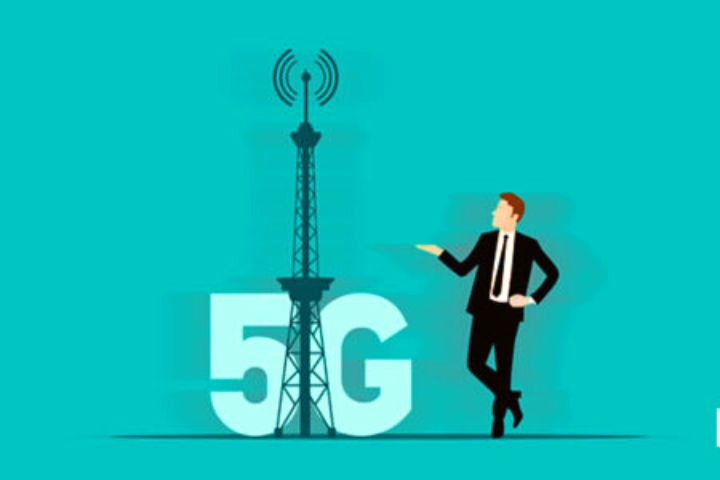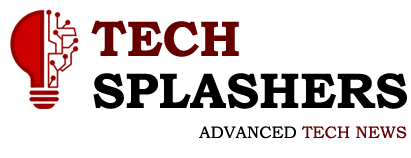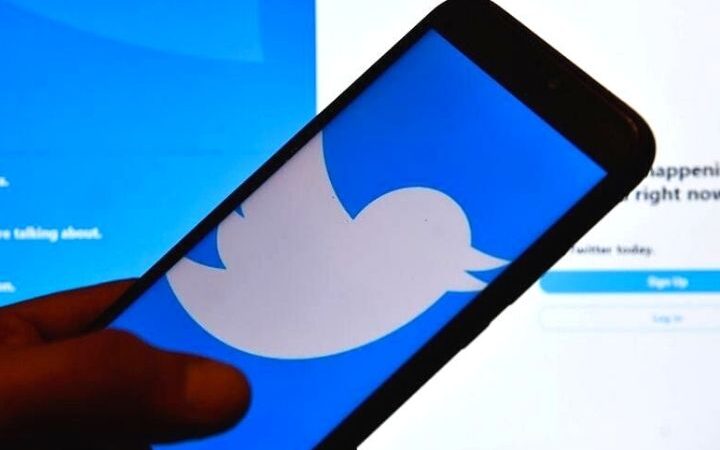How 5G Is Impacting Different Industrial Sectors

5G technology promises to be the next industrial revolution, precisely because it enables new production and business models. Thanks to its technical characteristics, far superior in all aspects to previous generations of mobile telephony and data, it will be the driver of many other converging technologies such as IoT, AI, Edge and Cloud Computing or Augmented and Virtual Reality.
In the last two years, the deployment has been constant, reaching 80% of the population, with a coverage that, as Vodafone has just announced, will reach 109 municipalities in 30 provinces this year . Meanwhile, there are already many companies that are using the full potential of the 5G network in use cases that have ceased to be pilot tests and have become success stories. In this post we are going to reveal what impact 5G technology has on the different productive sectors: Energy , Industry , Tourism , Transport and Logistics , Education , Health and Pharma and Agrifood. And we will do so by citing the reports produced by Vodafone Business and Capgemini Engineering.
Table of Contents
7 Reports On The Impact Of 5G Technology By Sector
The Vodafone Business Innovation team, in collaboration with Capgemini Engineering and relevant players from different productive sectors, have prepared a series of documents that reflect the impact of 5G and other technologies in different industries.
It is about inspiring the different sectors with the aim that they can visualize real use cases that can be the seed that makes the digital evolution of the organization grow.
In the words of Carlos Becker (Director of the Corporate Segment and AAPP Vodafone Business) during the presentation of these reports it is not just about deploying the network infrastructure, “but about starting projects and drawing conclusions”. Until now, in the case of the Pilot projects , we were basically talking about five things: The technology itself and what this technology contributes from a technical point of view and technological advances. Of the business models it provided, because it really was a more disruptive technology in business models than technological advances, of the depth of field that could attract the different sectors, of the ecosystem and talent effect.
Based on these premises, the most in-depth document on 5G has been created to date in Spanish and which is intended to give rise to the following steps on 5G: «Let no longer talk about pilots, let there be no talk of of use cases, but to talk about projects».
The largest Study On 5G In Business Prepared In Spanish
For Luis Manuel Diaz de Teran (Capgemini Engineering Telecommunications Division Director) the study they have carried out is really a key tool, because it covers the seven most important sectors of the Spanish economy in depth. More than 280 pages of report in which more than 54 key players from these seven sectors have participated, with a multidisciplinary team, experts in technology, but above all experts in production processes and how technology changes the business model. In his own words:
“It is a decision-making tool for managers and people who want to solve the business model, so that their companies are much more competitive, and it generates much more wealth and employment.”
In the presentation of the sectoral reports ( see ), a short tour was made of some of the experiences recounted by the protagonists of some of the essential sectors. Enrique Colilles , General Director of Trops, explains that “The best time to start with a new technology is when the technology starts, because right now our imagination is really overflowing.” It is at this time, when “we have to think about what applications we can develop and we have to learn from them.” For his part, Dr. Pedro Ruiz Ripoll (Specialist Orthopedic Surgery and Traumatology at Ripoll and De Prado Sport Clinic) assures that “5G is going to be an essential instrument in medicine to be able to extend the quality of medical diagnosis, thanks to the quality in the transmission of images and tests, which will represent a very significant advance”. Regarding Tourism , Antonio Quiros Estepa (Coordinator of the National Pole of Digital Content) believes that “one thing is to see a photo and another thing is to be inside the cathedral or in the tower that does not exist, even being where you have not been able to be never. That, obviously, without augmented reality is impossible to do , and this will be precisely one of the technologies that grows the most with 5G”. Or to speak of a more far-reaching industrial activity, Francisco de los Santos(Technology Director of the Port of Algeciras) explains how it is no surprise that information technologies are transforming the port sector and the maritime sector. In reference to his experience, he adds that “the fact that Vodafone’s 5G has lower latency facilitates the use of drones , facilitates optimal reception of data and the quality, of course, of the image that the drone can give us. to transmit”.
Alberto del Sol (Director of Innovation and Marketing Vodafone Business) was in charge of presenting in Madrid, broadcast by streaming , what he considers to be the 7 most relevant reports for the industry sectors in Spain , from an eminently practical point of view, because “ when we talk about open innovation or open innovation, it is useless to make use cases, put them into practice with clients, if you don’t count them later.”
At a time when many companies will be defining their strategic plan for the next year or the next three years, these documents can help define how to take advantage of technology, specifically 5G.
In addition, del Sol wanted to highlight that the technologies that the reports also talk about can help ensure that sustainability and how companies impact society, and “how technology can help them to have sustainable competitive advantages over time.”
The 5G experience of the sector players
On the occasion of the presentation of the reports, two round tables were organized with some of its protagonists. The first of these included Ruth Pablo, Head of Digital Transformation at the Port of Barcelona ; Jesus Regodon, Director of Innovation and Sustainability at Trops, a large avocado and mango producing company in southern Spain, in Malaga; Marcelino Caballero, Market Director of IKERLAN associated with the world of industry and innovation and Paulino Guerrero, Head of Technological Infrastructure and IT Operations at Cepsa. Each of them provided valuable insight into how the use of 5G is impacting their industry and business model.
Logistics And Transport Sector
Ruth Pablo summarized the complex situation in the logistics and sea freight transport sector as a result of situations such as COVID and how “the market is asking the logistics chain to be more flexible and more resilient, because these kinds of things are going to happen more frequently.” According to her, this is where technology is going to play a very important role, and in relation to technologies such as 5G in the case of ports, for example, it allows them to reach places where traditional telecommunications are difficult to access: “It is more difficult to lay fiber optics” he comments, while adding that, in addition, 5G is a great enabler of new technological solutions: “In the end, 5G is going to help improve operations, improve process automation, improve traceability of the merchandise and to know better what is happening and especially to have information in real time”.
For example, in the Port of Barcelona, geolocation tests have been carried out on pioneering vessels worldwide, about which Ruth wanted to remind us that “Let us not forget that in the near future we will begin to see connected vessels”.
Ruth Pablo commented on a very relevant topic that is standardization, on which Alberto del Sol wanted to influence: “When we talk about standardization in interoperability with other systems”. The so-called Internet of Things begins to be called Intelligence of Things because in addition to connectivity, we add an analytical layer and the intelligence of 5G. The fact that there are many elements in an industry or in a port that were connected with different protocols, with different security systems for IT managers was chaos. Now, “being able to standardize and having a technology that allows you to facilitate that connection allows you to later implement much more resilient security policies.”
AGRI-FOOD SECTOR
Another essential and traditional sector such as agriculture is also being transformed by 5G technology. Here Jesus Regodon. He believes that innovation in the field has more to do with structural than technological problems, since until recently there was no energy in the field and there were no telecommunications either. “Energy and telecommunications are enablers to be able to produce more and better and efficiently,” he explains. However, for RegodOn, today energy comes through renewables and that obstacle has already been solved, while telecommunications connectivity is not 100 percent solved in rural areas, but there is already a large progress in that direction, and 5G will be essential. “That connection and that source of energy is driving the agricultural sector right now., to the transformation more than digital, a cultural transformation, because a change in the business model, thanks to the enabling of new technologies that are changing agronomic management, we are increasingly making decisions based on data , rather than by intuition , which is typical of the farmer. And on the other hand, it gives us tremendous potential that opens up a world of possibilities”.
Industry Sector
Marcelino Caballero , Market Director of IKERLAN, contributed his experience from a technology center belonging to the Mondragón Corporation and the Alliance of Basque Technology Centers. His projects in the field of data management and processes in the cloudthey cover the entire value chain and are applied to industries of all types and sizes. What they are trying to do with their IKERLAN KONNEKT platform is to empower companies, seek new solutions and find differential and competitive value in the market. Their clients include companies of all sizes, and he detailed the example of a manufacturer of industrial drills that can now “know three things that are very basic: the location of their drills, the availability of their drills and the work cycles that they they are doing their drills through that knowledge.” What this SME has improved with this digitization is all its after-sales service and the development of its product. That would be a case, for Caballero, very simple to understand. Secondly,
Specifically, what they are monitoring is a press in real time, based on predefined and automatic patterns of artificial intelligence:
“What we are seeing is that we are monitoring each press stroke and we are able to see if there is a problem or even anticipate if there are going to be problems due to misalignment of the dies or the parts that make up the press.”
Energy Sector
The round table continued with the intervention of Paulino Guerrero from CEPSA, a company that already had some inertia or a track record in matters of private mobile networks with 4G to be deployed in the Huelva refinery and that is now committed to deploying 5G. Technology is a core issue in the refinery business. That is why Guerrero believes that this type of change depends more on the culture of the company and the motivations of the management, than on the rest of the departments. In the case of CEPSA, “the management of the factories, for example, has understood from the beginning that these are totally structural issues on which we will later build more” —he explains— “And also in the field, the field operators have accepted as a technology that they already live in their personal day, because everyone handles a mobile or has a tablet.”
Applying 5G solutions in a place like a refinery has been a challenge for all of them that they feel satisfied with.
A factory or a refinery is a deeply automated facility from the ground up. However, there is a part where automation does not arrive in a medium range of equipment that must be monitored and especially in the field, because in a refinery nothing that enters there may not comply with anti-explosive regulations, for example. Despite the difficulties, CEPSA has 5G connected devices that can delegate instructions and maintenance operations, and thus can know the operating condition of a piece of equipment in real time and online.
The second round table brought together Héctor Coronel, Director of Madrid Destination Tourism of the Madrid City Council; Alejandro Expósito, Digital & Business Operation Director at Merck and Andres Prado, ICT director at the University of Castilla-La Mancha .
Tourism Sector
When asked how 5G is going to impact Tourism , Héctor Coronel believes that in his case it will serve to redesign his entire strategy and how to redraw the Visitor Travel Journey, from a more inspirational part in the promotion of destinations: “Technologies such as 5G, precisely, what they are going to facilitate us is to anticipate those experiences to inspire those future visitors and that they choose our destination instead of other destinations.” Coronel believes that what will also facilitate connectivity, with artificial intelligence, is adapting the specificities of each market and each type of tourist to each tourist. What are his dreams, what does he want to do in destiny? A person can travel for work, another time they can travel with family, friends… and the needs at each moment are different.
Therefore, “what technologies have to help us with is precisely to identify and classify what those purposes are and, above all, to have an impact on the tourist offer.”
Geolocation also comes into play in this strategy once the tourist is already at the destination, which they already identify through geolocation, through mobile devices. The interesting thing “is the reorganization precisely of that agenda to impact on the fundamental aspects, which is first the optimization of their time, which is very valuable, and second, the economic impact it generates, since a tourist in a queue at a museum it is not spending and it is not investing its time well, and of course it is not impacting us in this indicator that is the average expenditure per tourist. And in the end all this impacts us in that last phase, which is what we want to achieve thanks to all this technology.”
Pharmaceutical And Health Sector
To talk about the pharmaceutical industry, Alejandro Exposito explained the issue of ecosystems that are being promoted by the need for co-creation to exploit all the possibilities of 5G technology: “for example, we have an alliance called TRIUNFAR, which is about quantum computing, in which we look for use cases to be able to take them to the industry, and this is a pre-competitive environment. In other words, we usually say that we are here to share and not to compete. Then we’ll see. And of course we collaborate with the public part, of course”.
In another example, Exposito believes that thanks to digitizing the system, new models of patient care can be created.
Regarding the limits of this coopetition in ecosystems, Alberto del Sol, as moderator of the table, wanted to know his opinion on whether he believes that there are departments that are more open to collaboration. He does believe that perhaps the technical departments have fewer problems and the engineers have certain needs that are very common within an industry, and they are more open. But when you go up the ladder and talk to marketing departments, or innovation, it’s like they close. “Well, you see, I think there’s a trick to it, and that is that you have to have a purpose —expósito replied— I think all companies have to have that purpose and then, with that purpose, some values. In our case, it is to create medicines that help improve people’s lives. We work to create products to improve and prolong people’s lives with that purpose. I believe that taking that ahead and sharing it with the rest of the actors in the system. I think that’s the best way to do it.”
Educational Sector
Finally, it was the turn of Andres Prado, UCLM ICT Director, to analyze the impact of 5G in the educational sector and the possibility of incorporating technologies. And there too, that concept of 5G as a facilitator can help us a lot, especially, says Prado, “in those applied technologies or in teaching environments, where there is interactivity and synchrony between the teacher and the student.” Those environments he does understand can be greatly favored by the entry into play of a technology such as 5G. And in addition to that, he believes that we must take into account other challenges that are not specifically technological, but also linked to the very capacities of the actors that are part of the education sector :
“I am talking about being able to enhance the digital skills of our students, but also of our teaching staff.”
He believes that technology must be incorporated, but above all technology must be incorporated with new methodologies. From the University of Castilla-La Mancha they are leading a project to generate digital skills content for their students and for the general public, with the collaboration of almost twenty Spanish universities. There is another initiative from another set of universities to improve the digital skills of our teachers, specifically to improve the adoption of technology and the evolution of teaching methodologies incorporating this technology. Another project in which they are also participating is trying to extract information from all that amount of data that is going to be collected.
The 5G Industrial Revolution Is Already Underway, It’s Your Turn
Alberto del Sol closed the presentation of the sectoral reports stating that 5G is a technology that is going to revolutionize everything. Companies are going to radically change their processes and way of working, the way of relating between their own employees and with clients, of designing projects, they will have access to more efficient and secure networks, greater immediacy of response and will offer better 5G services. It will be a paradigm shift. New business models will appear that will mark a before and after in the transformation of companies and organizations.
Understanding the potential of 5G will be essential to building sustainable competitive advantages in all sectors.






